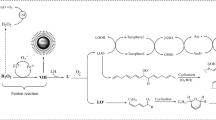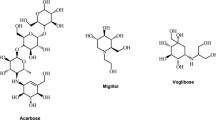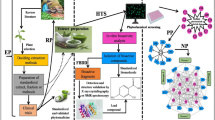Abstract.
Phytanic acid is a branched-chain fatty acid that accumulates in a variety of metabolic disorders. High levels of phytanic acid found in patients can exceed the millimolar range and lead to severe symptoms. Degradation of phytanic acid takes place by α-oxidation inside the peroxisome. A deficiency of its breakdown, leading to elevated levels, can result from either a general peroxisomal dysfunction or from a defect in one of the enzymes involved in α-oxidation. Research on Refsum disease, belonging to the latter group of disorders and characterized by a deficiency of the first enzyme of α-oxidation, has extended our knowledge of phytanic acid metabolism and pathology of the disease greatly over the past few decades. This review will centre on this research on phytanic acid: its origin, the mechanism by which its α-oxidation takes place, its role in human disease and the way it is produced from phytol.
Similar content being viewed by others
Author information
Authors and Affiliations
Corresponding author
Additional information
Received 4 October 2005; received after revision 24 February 2006; accepted 26 April 2006
Rights and permissions
About this article
Cite this article
van den Brink, D.M., Wanders, R.J.A. Phytanic acid: production from phytol, its breakdown and role in human disease. Cell. Mol. Life Sci. 63, 1752 (2006). https://doi.org/10.1007/s00018-005-5463-y
Published:
DOI: https://doi.org/10.1007/s00018-005-5463-y




